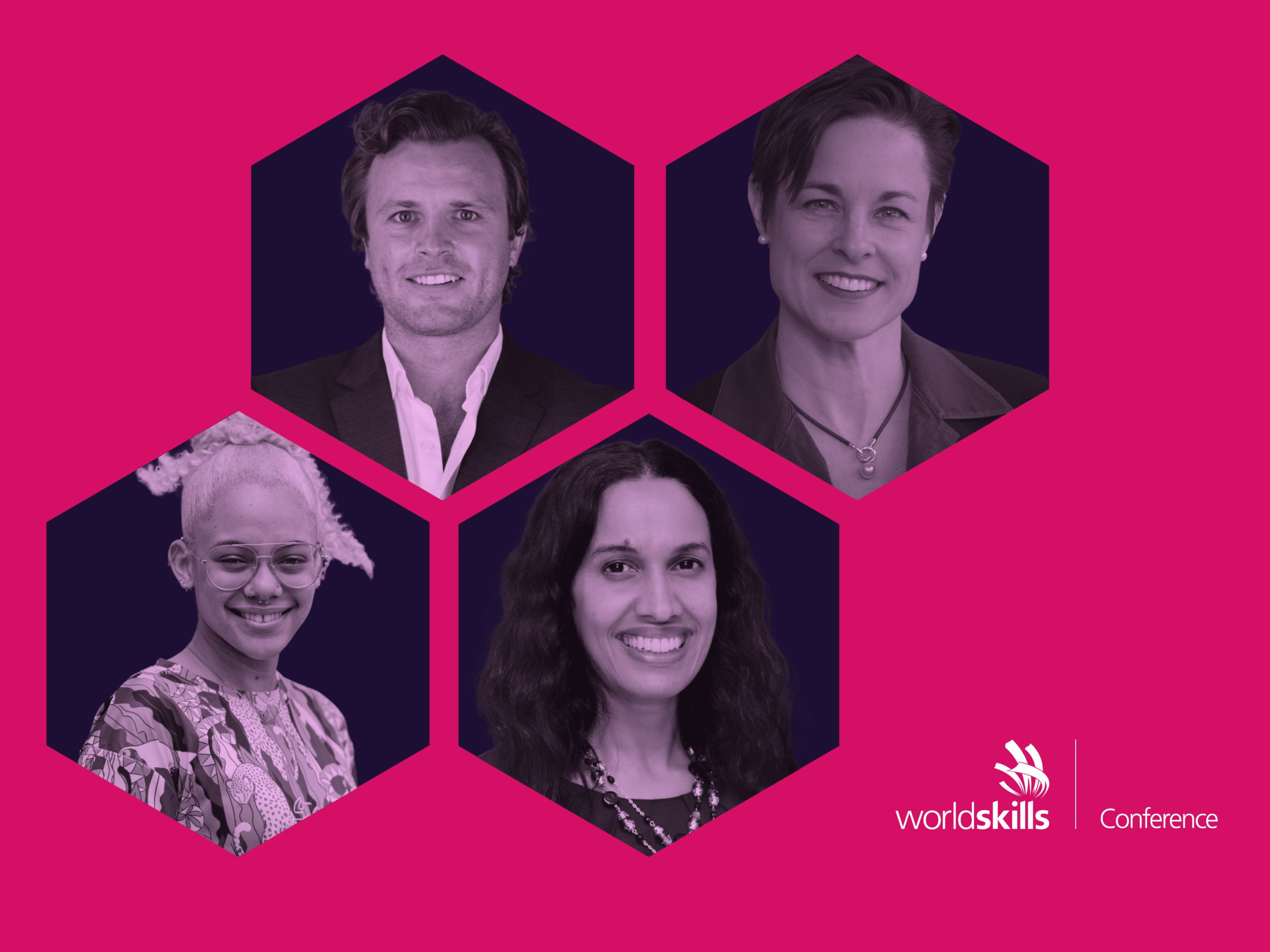Despite progress in many areas, gender inequalities in the labour market persist worldwide. On 11 September, WorldSkills Conference 2024 will bring together policymakers and industry leaders to address a pressing question: how can we rethink and design policies to dismantle the persistent gender gaps in the world of work?
Kathryn Rowan, Executive Director of Global Apprenticeship Network, will moderate a high-level policy debate featuring the perspectives of three global experts:
- Rainer Iveson, Director of L’Oréal for Youth, Global
- El Iza Mohamedou, Head of Centre for Skills at the Organisation for Economic Cooperation and Development (OECD)
- Shae White, WorldSkills Champions Trust representative for the Americas.
Kathryn, who has spent two decades working in the private sector in government relations and human resources for a large multinational, envisions the session as a catalyst for global action. She says, “Promoting gender equity on a global scale requires a multifaceted approach involving collaboration between not just governments, industries, and educators but also non-governmental organizations and civil society. While I have seen improvement, there is still so much work to be done.”
Outlining six areas where collaboration is vital, Kathryn explains, “Key areas where all stakeholders should be engaged include policy formulation and implementation, data collection and analysis, public awareness and advocacy, partnerships and collaboration, training and capacity building, and research and innovation.” She emphasizes that this approach is critical for success, “All parties have a role to play, but most importantly, there needs to be collaboration. Silo thinking should not be an option.”
The role of policy design will feature heavily in the session. Kathryn says, “Policymakers have an important role to play in ensuring conditions are fair by developing and enforcing policies that promote gender equity, such as equal pay legislation and anti-discrimination laws. They can engage with a range of stakeholders, including representatives from marginalized groups to inform decision-making around the design of inclusive policies. They can also collect and analyze data on gender disparities to inform policy decisions, to name a few.”
Emphasizing the practical value of this discussion, Kathryn shares, “I am especially keen to hear testimonials and real examples that our audience can take away to apply, replicate or adapt after the session.” She hopes that participants will gain “a deeper understanding of the systemic barriers that women face in skills development and employment,” and looks forward to “interactive discussions and the exchange of diverse perspectives, which can spark innovative ideas and collaborative efforts to advance gender equity in skills development.”
While acknowledging the complexity of the issues, Kathryn remains optimistic about the panel’s potential. She says, “I am under no illusion that there are quick fixes. Some of the challenges I predict this discussion will highlight could include the evolution of technology and its impact on gender equality, economic shifts disproportionately impacting women, deep-seated cultural norms and biases, and challenges in policy implementation amidst limited resources.”
This session at WorldSkills Conference 2024 is a key opportunity to discuss the advancement of gender equity in TVET and skills development. Uniting global perspectives with practical solutions, it will chart a course towards a more inclusive skilled workforce. Whether you are a policymaker, educator, industry leader, or advocate for breaking gender barriers in skills, join us on 11 September for insights that will help shape the future of gender equity.
Join the Conference as we shape the future of TVET. Find out more about registration, speakers, and the sessions.

